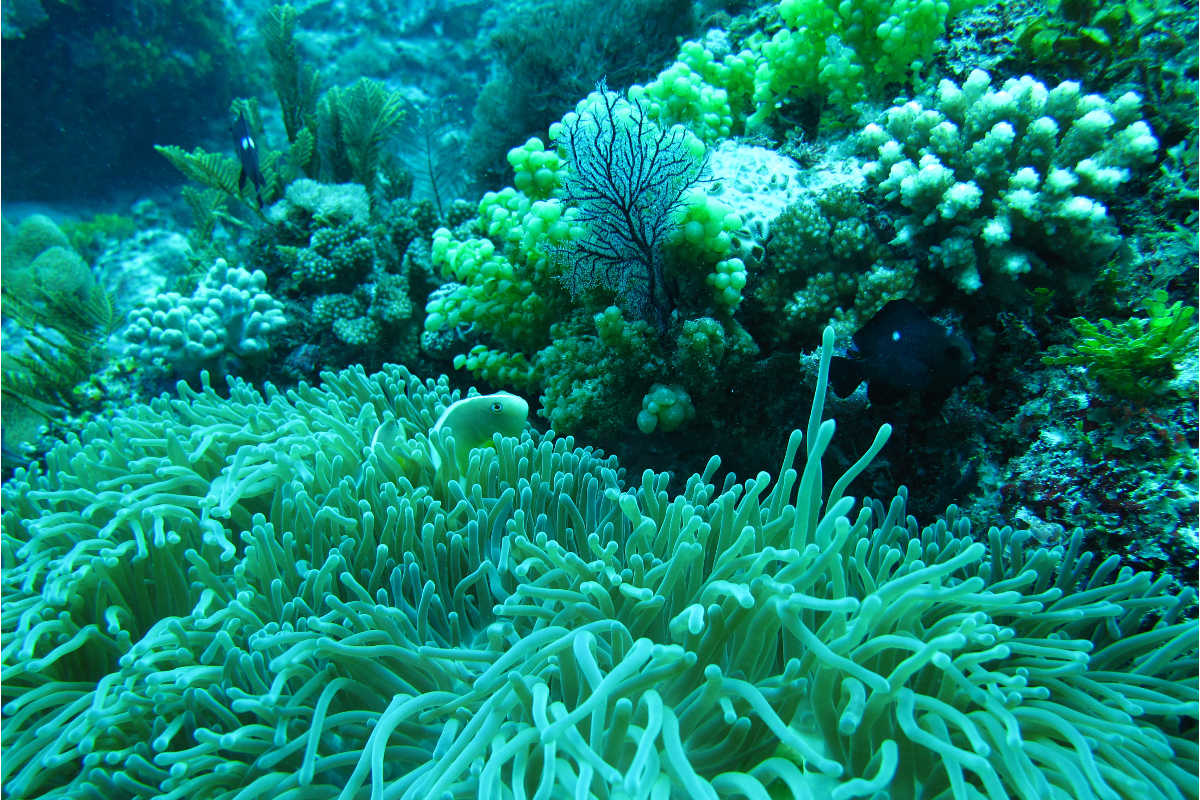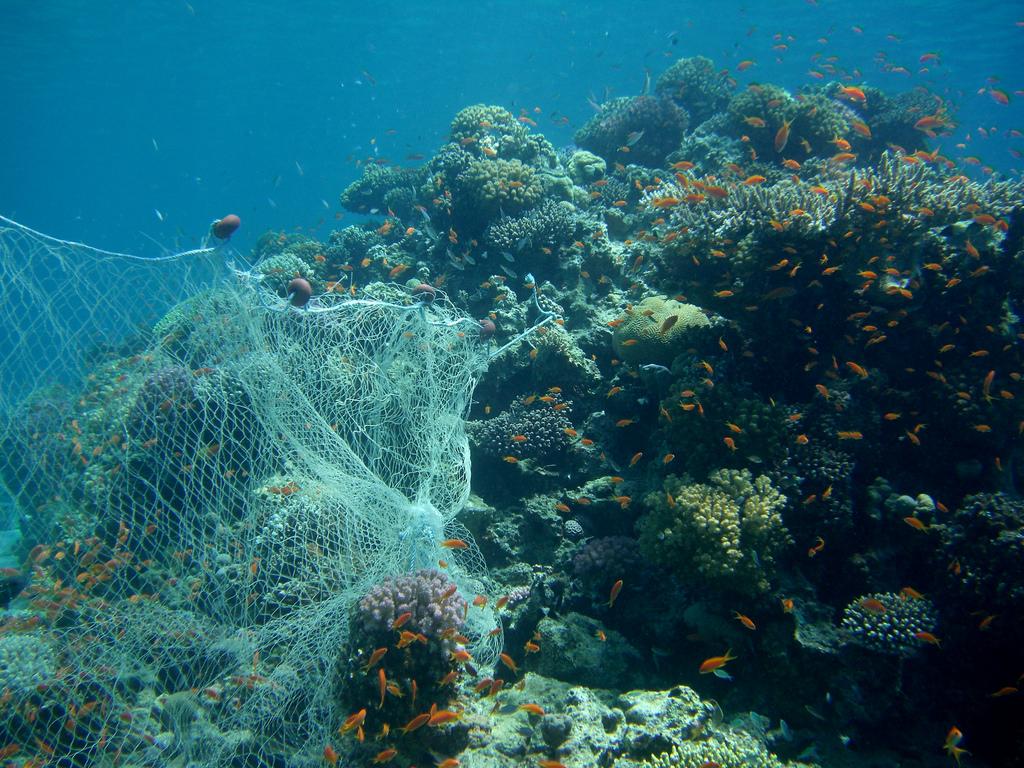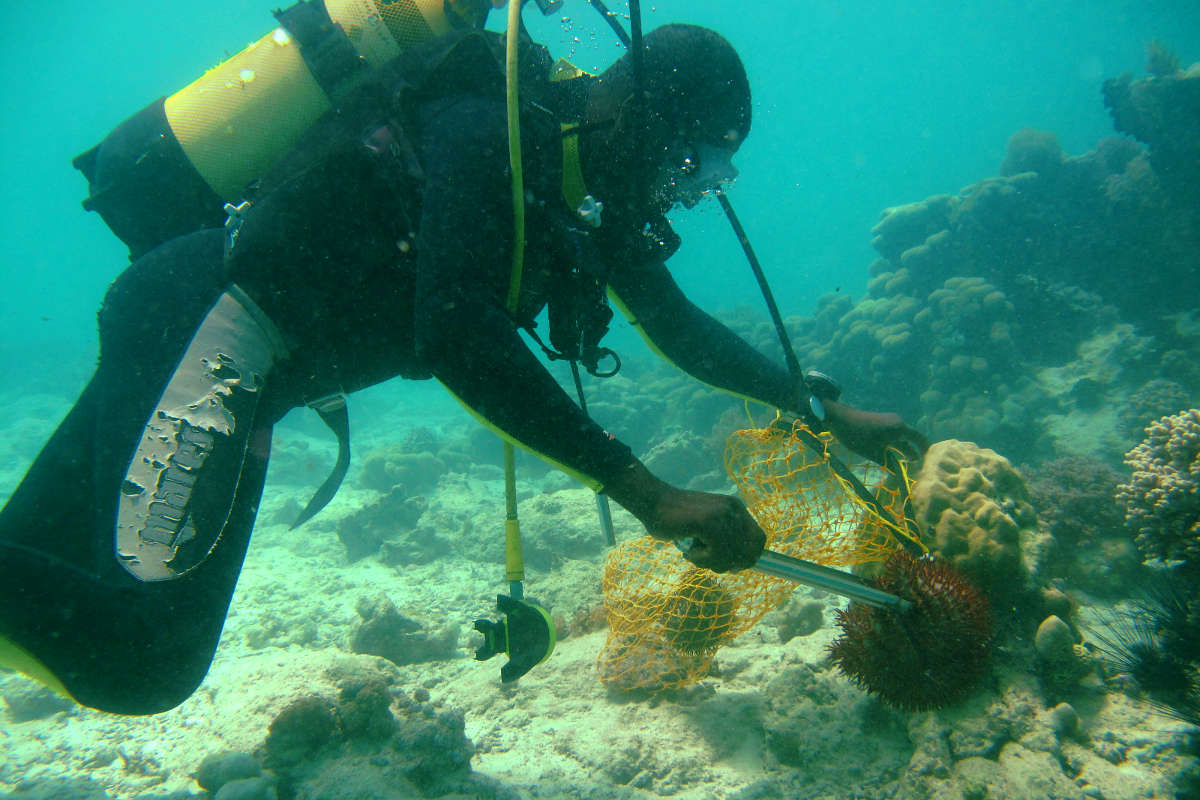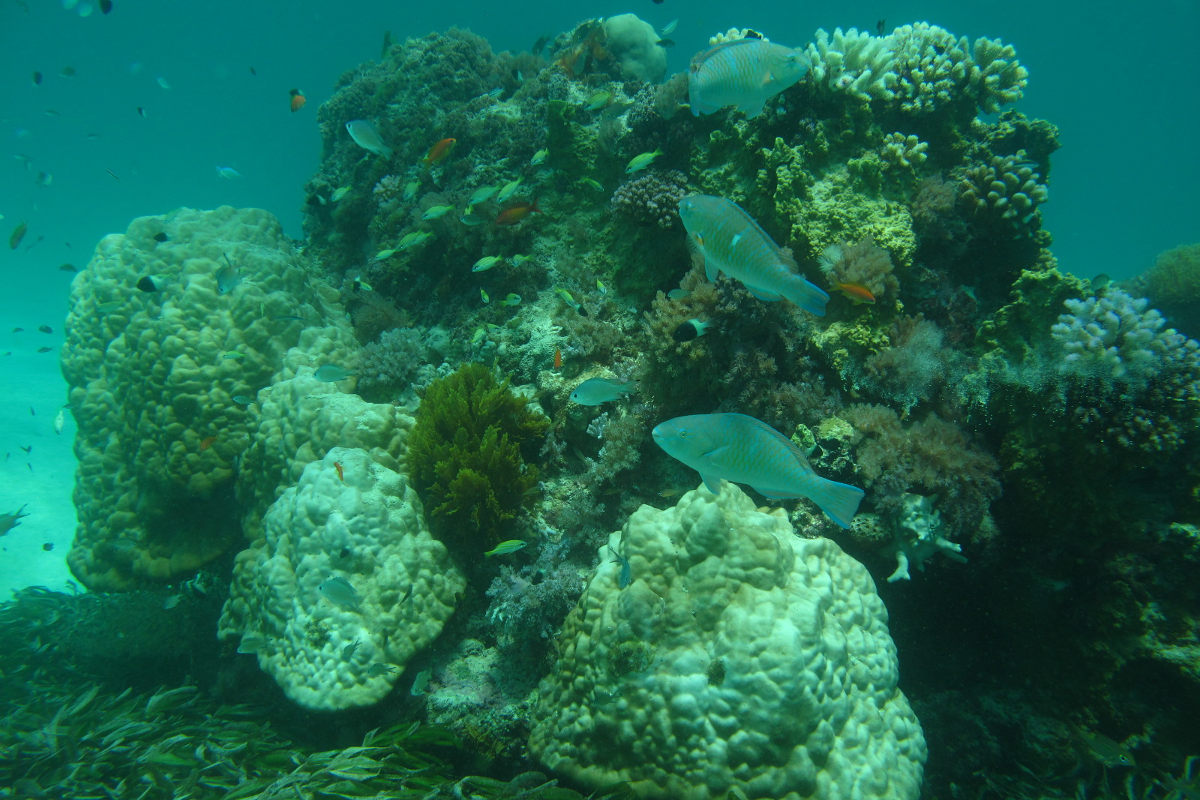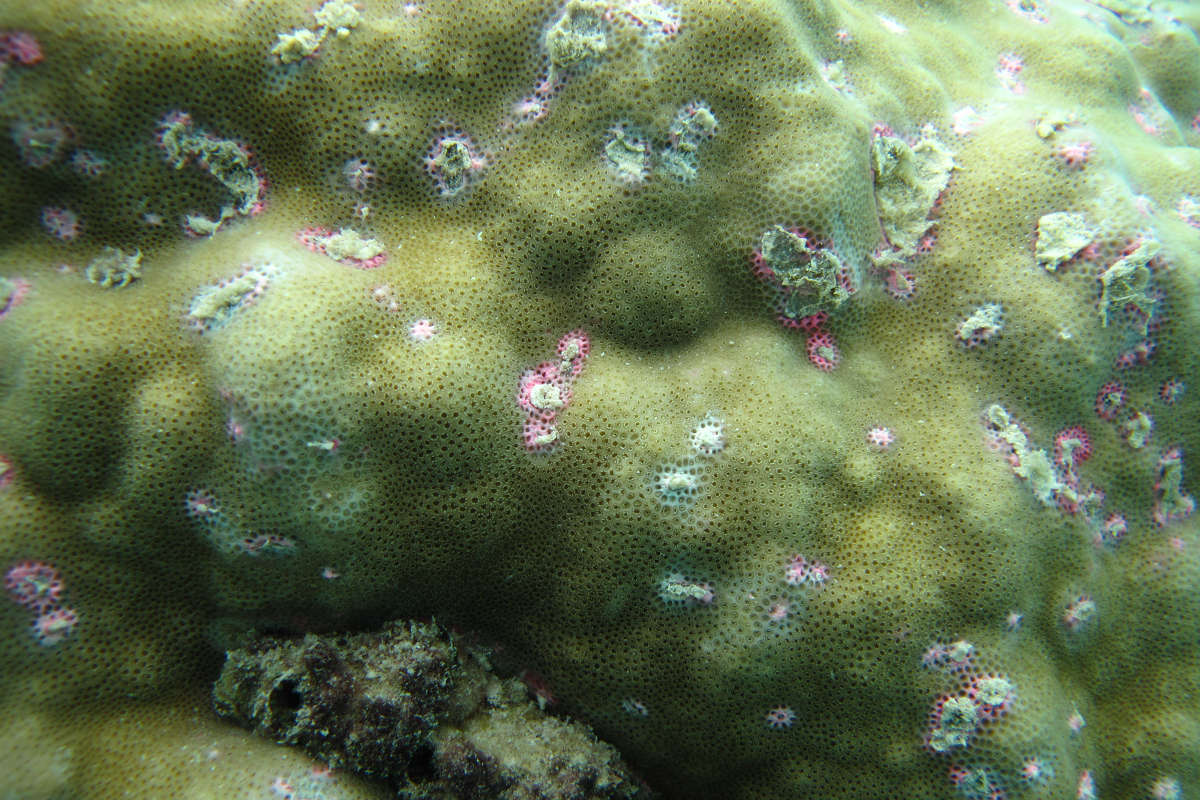Protecting corals
Healthy coral reefs are vital for the survival of humans and the environment. They are an important source of nutrients for marine life and provide income through fishing and as a tourist attraction.
Coral reefs worldwide are under increased stress. Zanzibar's reefs are also acutely threatened by climate change and the associated rise in sea temperatures, overfishing, pollution, anchor damage, tourism and coastal development.
Together with our partners and local communities, we are implementing tangible action to protect coral reefs.
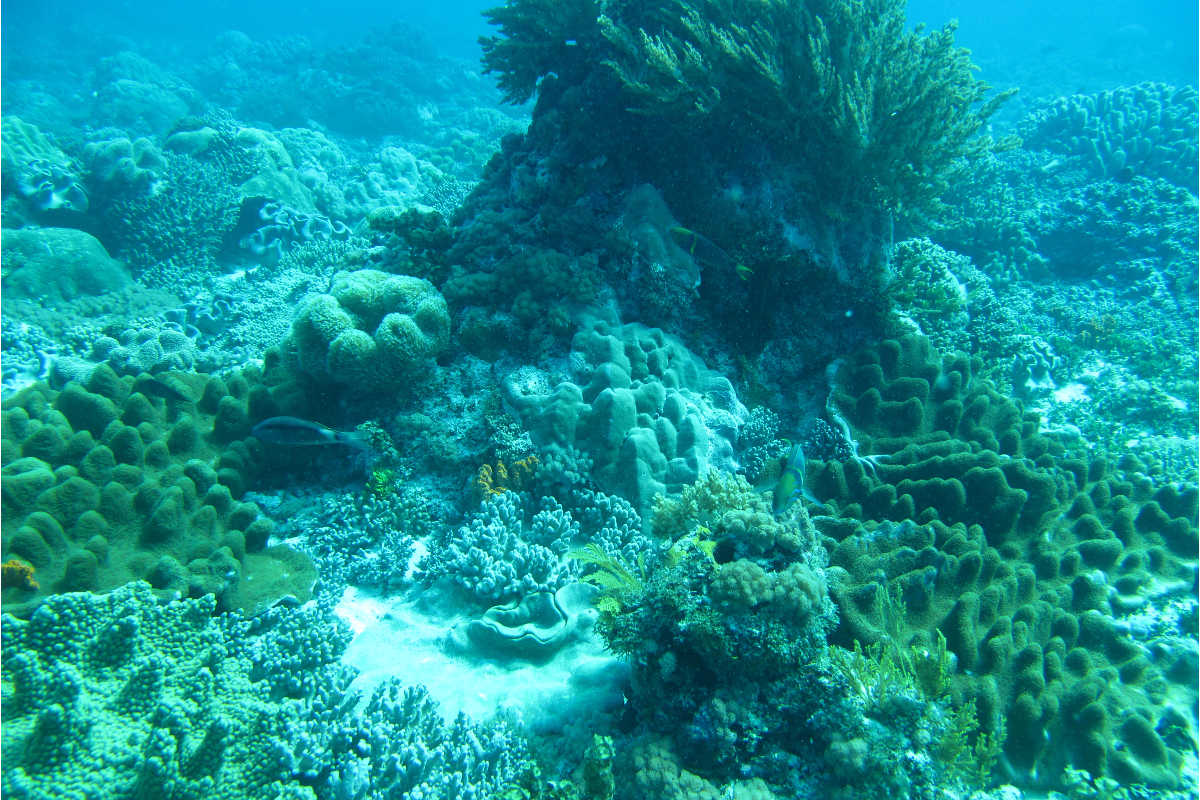
What we do
Growing corals
In the lagoon of Jambiani we have built a coral farm where we cultivate corals, develop this technique locally and train farmers for independence.
>> Growing corals
Reforestation of coral reefs
We reforest damaged reefs with corals that have proved resistant to high temperatures in the farm.
>> Reforestation of coral reefs
Building artificial reefs
To revive dead reefs or sandy seabeds, we build up artificial structures in and on which marine animals find shelter and a habitat.
>> Building artificial reefs
Reducing anchor damage
At popular dive sites, we install anchor buoys for skippers to attach their boats instead of damaging the corals through anchor ejection.
>> Reducing anchor damage
Monitoring of reefs
We monitor coral reefs and look for signs of coral bleaching, pests and illegal fishing practices in order to take protective measures.
>> Reef monitoring
Increase awareness
With our projects and specific awareness activities we increase awareness among local communities and the authorities for the importance of coral reefs.
>> Increase awareness
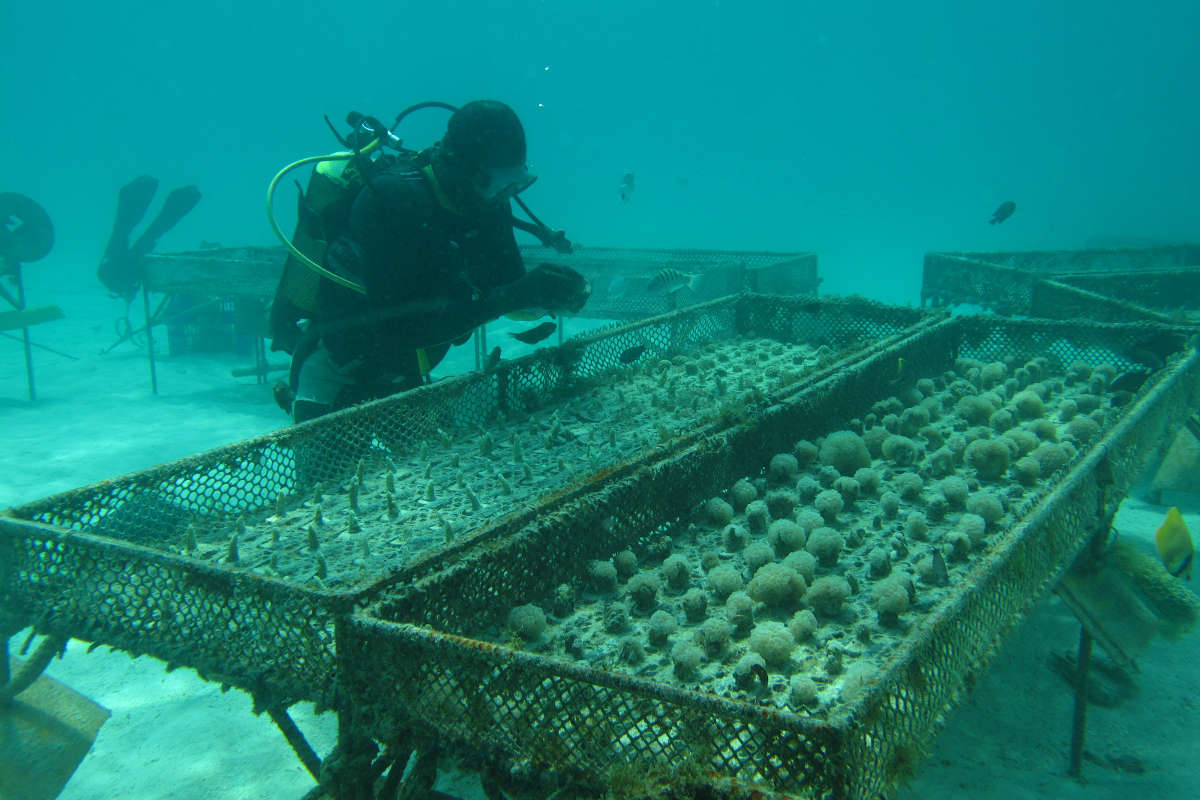
"We help the reefs to recover"
Okala, former coral grower and project manager at marinecultures.org:
"The environment here has changed. There are fewer and fewer octopus, fish, shellfish and corals. Many plants and marine animals suffer from high temperatures and climate change. Not so long ago, the lagoon was a healthy habitat for fish, but when the corals die, nothing lives there anymore.
We are trying to reforest the coral reefs, which is a big task. In our coral farm we grow soft and hard corals with different techniques. Now we concentrate on reforestation. We help the reefs to recover. We are replacing corals on reefs destroyed by climate change and unsustainable fishing practices."
>> Read the full story of Okala.
Additional Information
